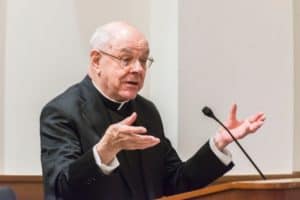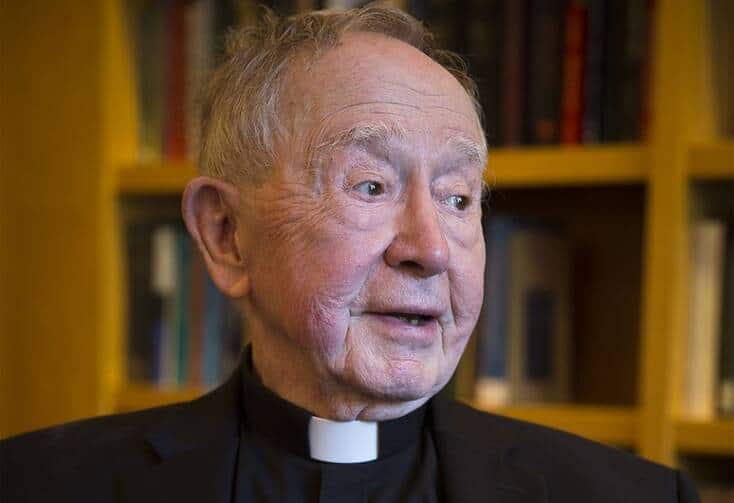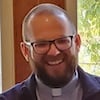Br. Brent Gordon, SJ is working on his doctorate in history at Saint Louis University. His focus is on the early Society of Jesus, and here he pays tribute to two of the most influential American Jesuit historians of the century.
It has been a difficult year of losses for Jesuits, for historians, and for Jesuit historians. Last Christmas Fr. John Padberg, SJ passed away in St. Louis. His longtime friend, colleague, and fellow Jesuit, Fr. John O’Malley, SJ flew in to attend the funeral and to give the homily – at the age of 94. Now he too has died, passing away on Sunday, Sept. 11th in Baltimore.
Both Padberg and O’Malley, born just over a year apart (in 1926 and 1927, respectively), entered the Jesuits at the age of eighteen (Padberg in what was then the Missouri Province, and O’Malley in the Chicago Province). Their formation – as Jesuits, as priests, and as historians – took place in the decades leading up to the Second Vatican Council in the early 1960’s. It is not an exaggeration to say that the Council, so defining for the entire contemporary Church, held a prominent place in the minds and hearts of both men. John Padberg spoke regularly about the importance of Vatican II, and to the end of his life often could not discuss it without tears of joy in his eyes. The effect of the Council seemed to be no lesser in John O’Malley, whose book, What Happened at Vatican II (2008), remains one of the best overviews on the subject.
Both men made incredible contributions to the field of Jesuit history (among others), though in rather different ways. In his capacity as director and editor of the Institute of Jesuit Sources, John Padberg spent two decades making the sources and history of the Society of Jesus available – in a particular way for Jesuits. The Constitutions, the foundational governing document of the order, was translated into English and published in a modern volume under John’s leadership in 1996. Since then, it has become not only de facto reading but one of the anchors of study for Jesuits in formation. John also served as the editor of a volume containing over 300 English translations of St. Ignatius’ letters. Though the prevalent view of St. Ignatius had become that of a shrewd administrator and political actor, the readily accessible selection of letters that John helped make available expanded our understanding of our founder as a man who was understanding, firm at times, and deeply driven for the greater glory of God.

John W. Padberg, S.J., who died on Christmas Day, 2021. (Photo by Gary Wayne Gilbert/ Boston College)
John Padberg introduced generations of Jesuits to St. Ignatius and the other figures of our early history; John O’Malley introduced those same people to the broader academic world. The First Jesuits (1993), the work for which John O’Malley is probably best known, serves as a sort of biography of the early Society of Jesus and (in the anecdotal experience of one historian, at least) remains one of the most frequently cited works on the Jesuits in publications on early modern history. Not one to simply rest on his laurels, John was a prolific writer. His book on the sixteenth century Council of Trent, Trent and All That: Renaming Catholicism in the Early Modern Era (2000), has helped to expand historians’ views not only on the Society of Jesus but on Catholicism in the early modern period. In addition, John co-edited several works on Jesuits in the arts and sciences and authored books on the Renaissance, Early Modern Catholicism (a term he preferred to the more commonplace “Counter-Reformation”), and Church Councils.
These two men, so dedicated to understanding and to making known the history of their Church and their Society, represent a unique generation of religious historians. They came up steeped in the movement of ressourcement, the call in the Church for each religious order to return to its founding sources, which flowed from Vatican II. Both John Padberg and John O’Malley internalized this call and lived it as part and parcel of their own vocations – as Jesuits and as historians. While their work remains important and makes them worthy of remembrance, it is their witness to the Spirit working through time to instruct and enliven us which will be more sorely missed.


